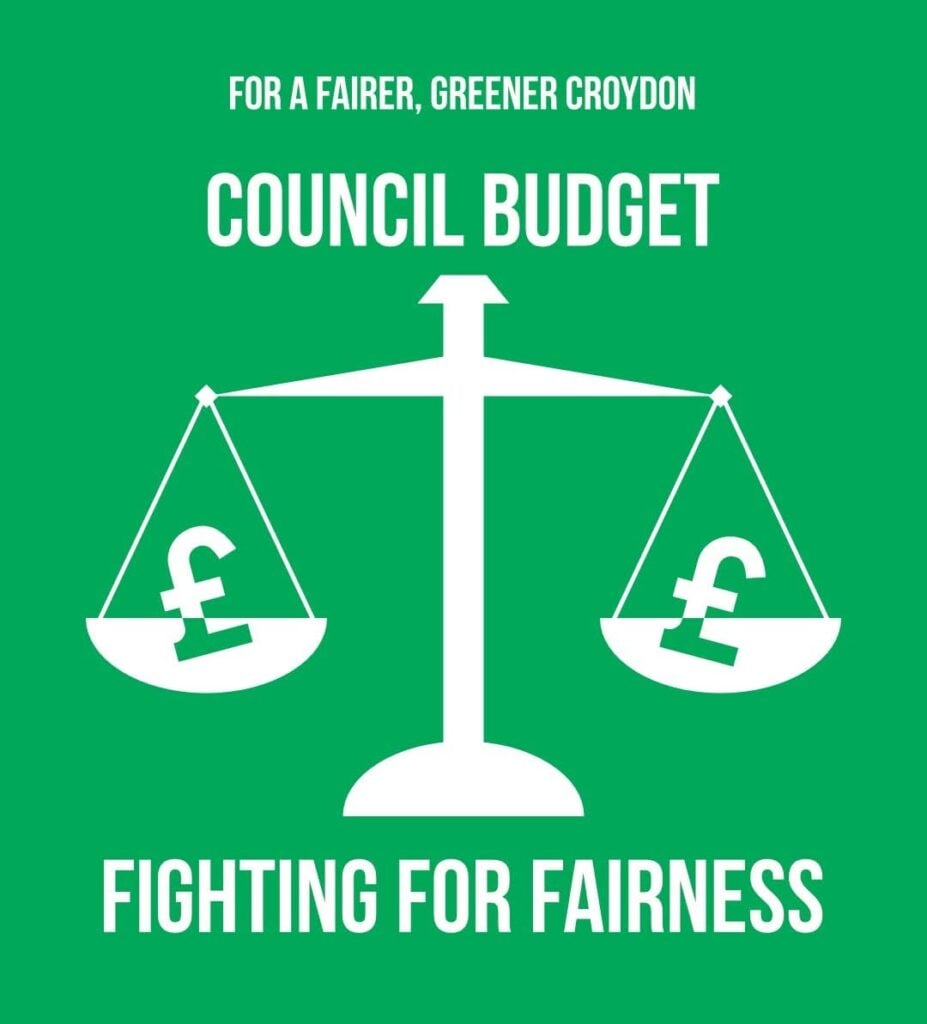
Following the recent Government statement about sending in Commissioners to oversee some aspects of Croydon Council, Green Councillors Ria Patel and Esther Sutton have written to Jim McMahon, the Minister of State for Local Government and English Devolution.
Greens have stated that any plan to improve Croydon Council must include a debt write-off. We have also repeated our call for the Government to fund Croydon fairly. We have made it clear that the Commissioners must not be used to undermine local democracy but they should have the power to call for the additional funding that Croydon desperately needs.
The full text of the letter is as follows:
25 June 2025
Dear Jim McMahon MP,
RE: Representation to June 2025 Written Ministerial Statement on Local Government Best Value and the Future of Croydon Council
We are writing as Croydon Green Group to respond to your recent Written Ministerial Statement dated 12 June 2025, concerning the funding and governance of local authorities, with particular reference to the ongoing situation in Croydon.
We must express deep concern that the proposal to appoint commissioners in Croydon erodes democracy and doesn’t provide any actual solutions to address Croydon’s structural financial challenges, nor is it the significant financial intervention required to secure a fair and sustainable future for our borough.
Croydon’s financial situation is critical. The Council’s debt has reached £1.4 billion and is set to rise to £2 billion by 2029. Over £167 million in budget cuts have already been made, with an additional millions projected. £130 million worth of assets have been sold off, with more sales proposed. This situation is unsustainable and leaves vital public services and resources vulnerable. Croydon Council must protect its services and assets in light of previous reductions and the ongoing disposal of public resources.
1. Debt Relief, Not Perpetual Capitalisation
The current capitalisation arrangements, which force Croydon to borrow with interest to meet day-to-day costs, deepens the problem. This model is fundamentally unsustainable. Annual debt repayments, which are due to reach £110 million per year by 2029, putting frontline services under intolerable pressure.
We urge the Government to consider a one-off, full or partial debt write-off, similar to interventions made in the past for other bodies. Without this, Croydon is being asked to recover while shackled to the very burden that caused its collapse. As a start, the government should scrap all interest payments required with any capitalisation directions.
2. Fair and Adequate Funding for Local Authorities
While we acknowledge the commitment to review the local government funding formula, this must be both needs-based and fast-tracked. Years of underfunding have contributed to a hollowing out of services, particularly in areas like Croydon with high social need and inequality. We need fairer funding for Croydon, compared to other London boroughs. Croydon is an outer London borough; however, it faces issues similar to those of inner London boroughs, and often funding does not adequately reflect these challenges. Two specific areas that need greater funding are housing and homelessness, and SEND.
From a local perspective, Croydon cannot endure continuous cuts, without irreversible damage and continued harm to our residents, particularly those who are more vulnerable. We acknowledge the Spending Review is expected to conclude this summer, and we believe the local authority funding model needs drastic changes. Significant investment in local authorities is needed to offset the years of austerity, which could be funded through a wealth tax. A more ambitious and immediate uplift in grant funding is essential, and must be factored into the upcoming Spending Review. Additionally, a Council Tax banding review, and a commitment to long-term multi-year funding for local government, would provide more sustainability and allow for future-planning.
3. Protecting Services and Democratic Accountability
We remain concerned that the use of commissioners risks undermining local democracy and accountability, while failing to address the root causes of financial distress. Next year, we have local elections and there will be a new council, and hopefully a new Executive Mayor elected. Given we live in a democracy, it is vital that those elected retain decision-making power.
If commissioners are appointed, the council will have to pay a significant amount of money per day for commissioners, an increase on what is being spent on the Improvement and Assurance Panel. For a borough which is already financially struggling, this adds to the financial burden instead of providing a real solution.
It’s also unclear to what extent commissioners will be able to influence the government. If commissioners are appointed, they must have powers to mandate additional financial support from the government. Without such authority, their presence will likely worsen the situation rather than improve it.
We are both proud Croydon residents, and are committed to creating a borough that thrives. Croydon Council, and the Green Group, is committed to solving the financial challenges, but this is not possible without substantial financial support from the government. We do not see this intervention as a viable solution, and believe a more collaborative approach is needed, with the onus on the government to write-off our debt, and better fund local authorities.
Croydon is not an isolated case. It is a warning. Without bold intervention – a restructure of local authority funding, which centres genuine local decision-making, transparency from government, and a long-term funding solution for local authorities – other councils may follow a similar path. We urge you to take this opportunity to reset not just Croydon’s finances, but the wider principles of local government support.
Yours sincerely,
Councillor Ria Patel
Councillor Esther Sutton
Croydon Green Group